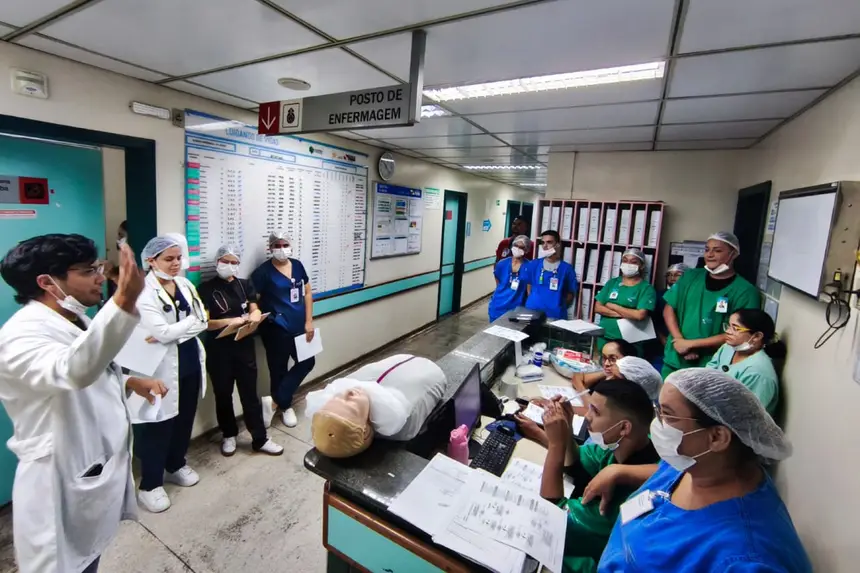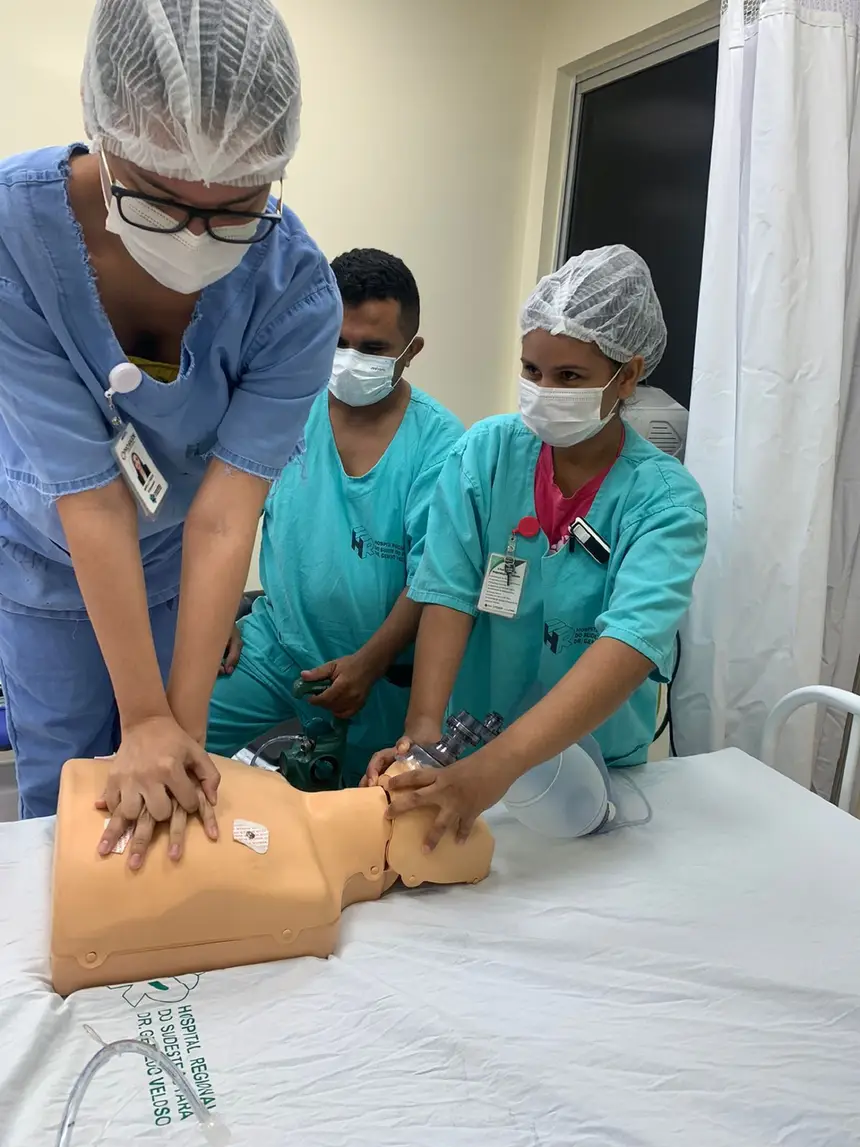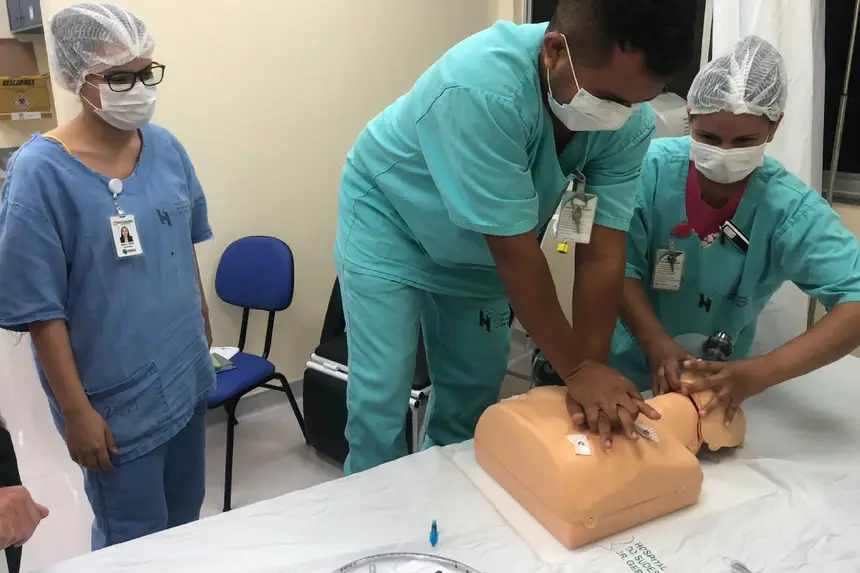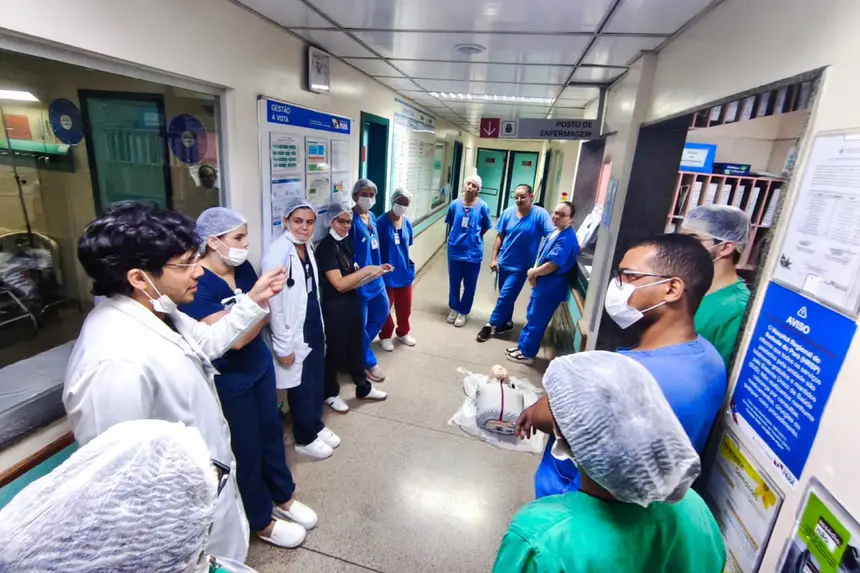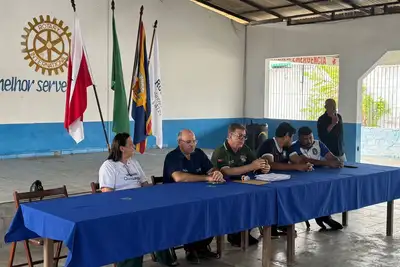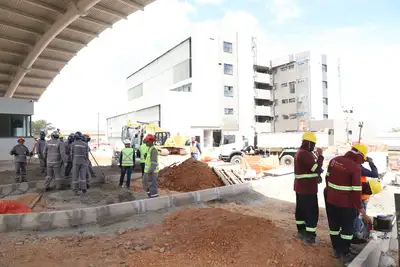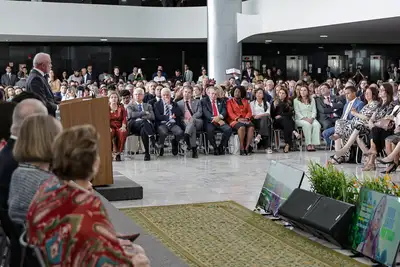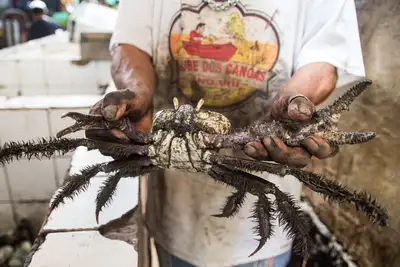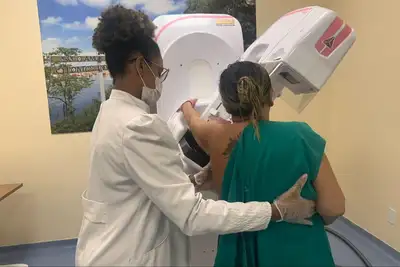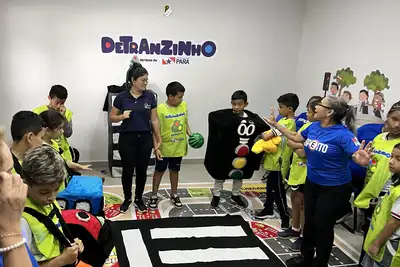Regional Hospital of Marabá strengthens life-saving safety practices
Professionals are trained to respond accurately in emergencies that require immediate action
In the care of life, every second counts. At the Regional Hospital of Southeast Pará – Dr. Geraldo Veloso (HRSP), in Marabá, this is not just an inspiring phrase, but a routine taken seriously. Among the protocols that ensure excellence in care is the Cardiopulmonary Resuscitation (CPR) protocol, essential for teams to act with agility and precision in the face of a Cardiac Arrest (CA).
Nurse Pamela Tortola, who works at the Pará government unit, explains that the CPR protocol is an essential tool in facing hospital emergencies and that its success is directly linked to the continuous training of the teams.
“We participate in frequent training sessions that simulate the real environment of a critical situation. Every step is rehearsed so that, in the face of any incident, everyone knows what to do. This readiness is what makes the difference between life and death,” she emphasized.
According to the Brazilian Society of Cardiology (SBC), approximately 400,000 people die each year in the country due to cardiovascular diseases, many of which are associated with cardiac arrest. This data reinforces the importance of keeping trained teams ready to act quickly to save lives.
Text by Ederson de Oliveira
Every second counts in the fight for life
These continuous trainings become even more essential in the face of the severity of a cardiac arrest, a situation where every second can determine the outcome of a patient's life. The hospital's medical director, Alan Ferreira, explains that this condition occurs when there is a sudden interruption of blood circulation and heartbeats, requiring an immediate and coordinated response from the multidisciplinary team.
“In seconds, the patient loses consciousness, and if the brain goes without oxygen for four to six minutes, the chances of survival decrease drastically. The agility and preparation of the team are decisive for saving lives,” said the director.
The confidence in the technical preparation is also felt by those under the care of the unit. José Ferreira, 58, a resident of Marabá in the Carajás region, hospitalized for orthopedic surgery, says he feels more at ease seeing the commitment of the teams. “We feel safer. Seeing that they train and are always ready gives us confidence because our lives can depend on seconds,” reported the patient.
The professionals qualified to perform resuscitation maneuvers follow strict protocols that guide every step of the care, from identifying the arrest to using the defibrillator and ventilation techniques. With a coordinated approach, the team ensures a quick and effective response in critical situations, guaranteeing more lives saved.
Training
The training actions at the Regional Hospital of Marabá, managed by the Social and Environmental Institute of the Amazon (ISSAA) in partnership with the State Department of Public Health (Sespa), are developed by the Permanent Education Center (NEP), which periodically promotes training for the institution's professionals throughout the year.
Flávio Marconsini, the hospital's executive director, emphasized that constant training is an essential part of the unit's mission. According to him, keeping the teams trained ensures that the care provided is always of excellence, even in the most critical situations. “Technical preparation is what transforms knowledge into action and protocol into life. Each simulation, each update, represents more safety for the patient,” he highlighted.
Structure: Care at the Regional Hospital of Marabá is 100% free, provided through the Unified Health System (SUS). The unit has 135 beds, including 97 for clinical hospitalization and 38 for Intensive Care Units (ICUs).


